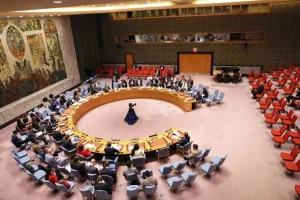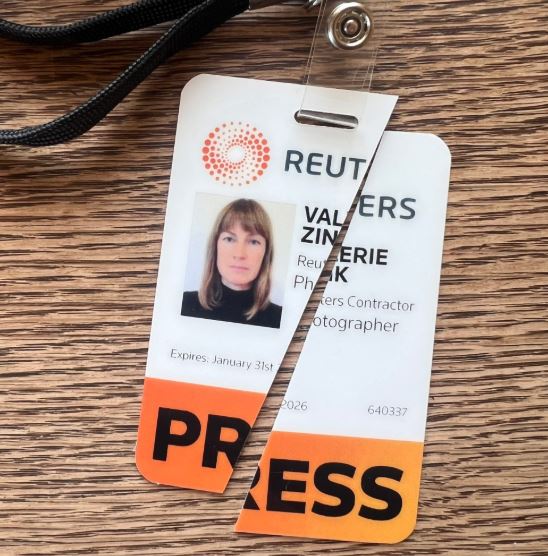Canadian correspondent Valérie Zink announced her resignation from Reuters news agency in protest against the agency’s role “in justifying and enabling the systematic assassination of 245 journalists in Gaza,” according to her statement. She added, “I owe my colleagues in Palestine at least this stance, and much more.” In a statement posted on her Facebook page, Zink said, “When Israel killed Anas Al-Sharif along with the entire Al Jazeera team in Gaza City on August 10, Reuters chose to publish Israel’s baseless claims that Al-Sharif was a Hamas operative — one of the lies that media outlets like Reuters have repeatedly echoed and legitimized.” She added that Reuters’ readiness to promote Israeli propaganda did not even protect its own journalists from genocide crimes; five other journalists, including Reuters photographer Hossam Al-Masri, were killed among 20 people martyred that same morning in another attack on Nasser Hospital.
This was known as a double strike; Israel bombs a civilian target such as a school or hospital, then waits for rescuers, paramedics, and journalists to arrive before striking again. She continued, “Western media is directly responsible for creating the conditions that allow this to happen.
As Jeremy Scahill of ‘The Intercept’ said, every major media outlet — from The New York Times to The Washington Post, from The Associated Press to Reuters — has served as a conveyor of Israeli propaganda, whitewashing war crimes and stripping victims of their humanity, abandoning their colleagues and their supposed commitment to journalistic integrity and professionalism.” The Canadian correspondent said, “By repeating Israeli genocidal lies without verifying their credibility — and deliberately abandoning the simplest responsibilities of journalism — Western media enabled the killing of several journalists over two years in a small strip of land, exceeding the number killed in World War I and II, and the wars in Korea, Vietnam, Afghanistan, Yugoslavia, and Ukraine combined.
This is in addition to starving an entire people, tearing apart their children, and burning people alive.” She added, “Even the fact that Anas Al-Sharif’s work won a Pulitzer Prize for Reuters did not compel the agency to defend him when Israeli occupation forces placed him on a ‘hit list’ of journalists accused of being Hamas and Islamic Jihad members. Nor did it compel them to defend him when he appealed to international media for protection after an Israeli army spokesperson published a video showing intent to assassinate him following his report on worsening famine. They also failed to honestly cover his death when he was hunted and killed weeks later.” She concluded her post by saying, “I appreciated the work I did for Reuters over the past eight years, but now I cannot wear this press card except with deep shame and pain.
I do not know how I can begin to honor the courage and sacrifices of journalists in Gaza — the bravest and greatest ever — but from now on I will direct all I can offer with this goal foremost in mind.”













Recommended for you
Talib Al-Rifai Chronicles Kuwaiti Art Heritage in "Doukhi.. Tasaseem Al-Saba"
Exhibition City Completes About 80% of Preparations for the Damascus International Fair Launch
Unified Admission Applications Start Tuesday with 640 Students to be Accepted in Medicine
Egypt Post: We Have Over 10 Million Customers in Savings Accounts and Offer Daily, Monthly, and Annual Returns
His Highness Sheikh Isa bin Salman bin Hamad Al Khalifa Receives the United States Ambassador to the Kingdom of Bahrain
Al-Jaghbeer: The Industrial Sector Leads Economic Growth